There remains major discontent among workers in Scotland’s public sector, as recent pay rises fail to keep pace with inflation.
There has already been severe disruption this summer as a result of strikes, and unions say proposed rises actually amount to a real-terms cut, given that inflation is currently at a 40-year high of 9.4%.
STV News looks at the public sector workers who have accepted a pay increase, and those still threatening to take industrial action.
Police officers: Dispute set to escalate
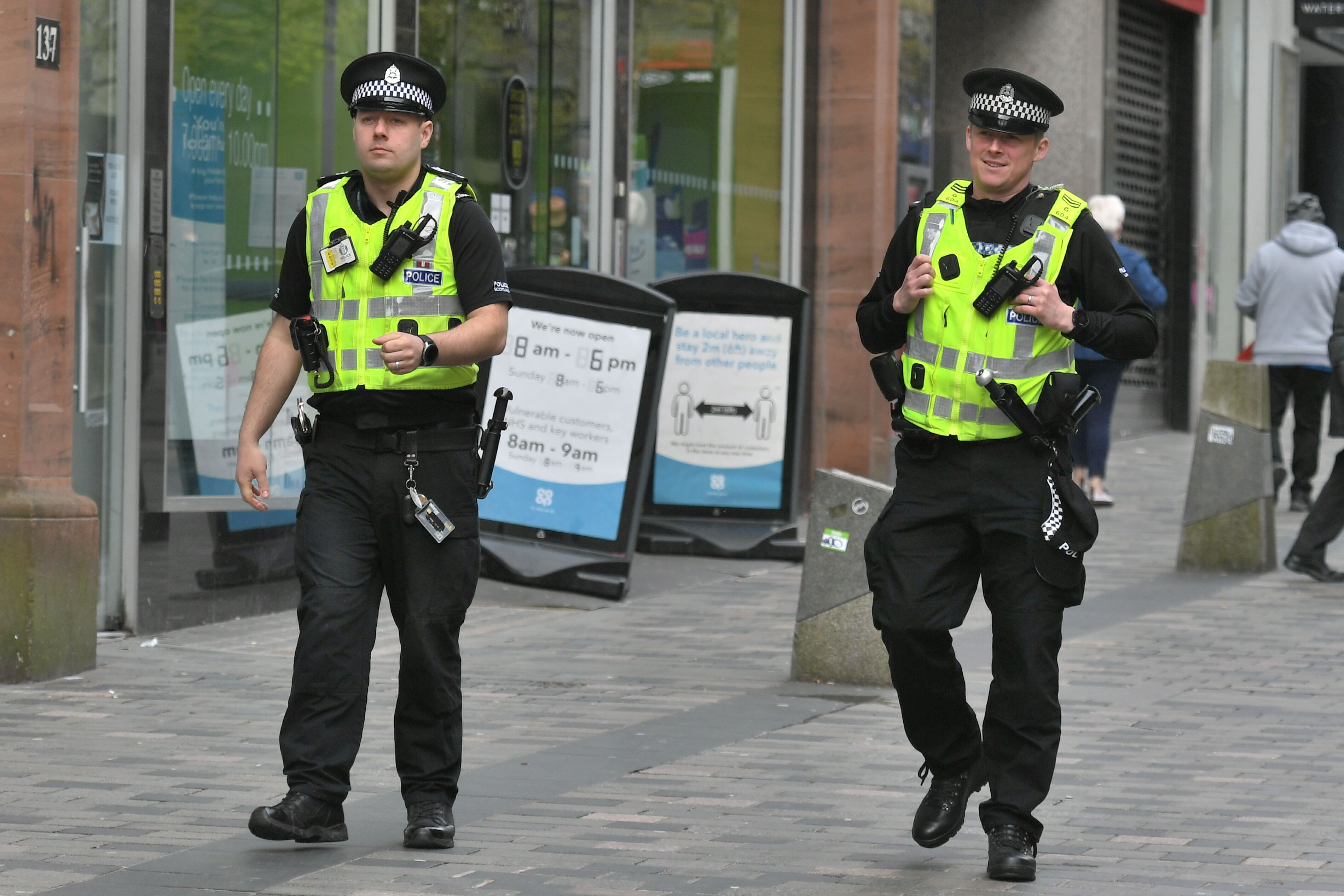 SNS Group
SNS GroupPolice officers in Scotland have rejected a revised pay offer following their latest round of negotiations with the Scottish Government.
Officers represented by the Scottish Police Federation (SPF) said it was an “unanimous” decision and have warned that the dispute will escalate if they do not receive an improved offer by August 5.
Police officers cannot strike, but the 17,500 members of the SPF withdrew “all goodwill” after a “derisory and insulting” pay offer of £565 which “must have been known to be so prior to being presented”.
Since the start of this month, rank-and-file officers have, among other things, refused to begin shifts early or take radio equipment home.
In the latest rejected deal, all ranks would see their salaries rise by 3.4%, backdated to April 1.
The Home Office said earlier this week that all police officers in England and Wales will be given an extra £1,900, applying to all ranks from September 1, the equivalent of a 5% pay rise overall.
NHS medics and dentists: Below-inflation pay deal

NHS medical and dental staff will see their pay packets increase by 4.5% this year, backdated to April 1, after health secretary Humza Yousaf accepted a wage rise recommendation from an independent review body.
The Scottish Government said the increase built on the 3% rise applied in 2021, and meant staff had seen their pay go up 7.5% over the last two years.
But the latest figures from the Office for National Statistics show Consumer Prices Index inflation rose to at least 9.3% in June, up from 9.1% in May, which was already the highest since early 1982.
Yousaf said the “uplift demonstrates that we value all our medical and dental staff and the important contribution they make” and meant that “our senior medical staff will continue to be the best paid in the UK”.
The British Medical Association hit out at the below-inflation pay deal, saying the Scottish Government has to “reflect on how it really values and treats our medical workforce”.
Meanwhile, the British Dental Association described the 4.5% pay rise as “derisory”, warning it will accelerate the workforce crisis facing NHS dentistry.
As part of another pay deal, the Scottish Government has offered a 5% rise to nurses, paramedics, allied health professionals and healthcare support staff.
In England, the average basic pay for nurses will increase from around £35,600 as of March 2022 to around £37,000 and the basic pay for newly qualified nurses will increase by 5.5%, from £25,655 last year to £27,055.
Teachers: ‘Fair pay’ petition and possible strike action
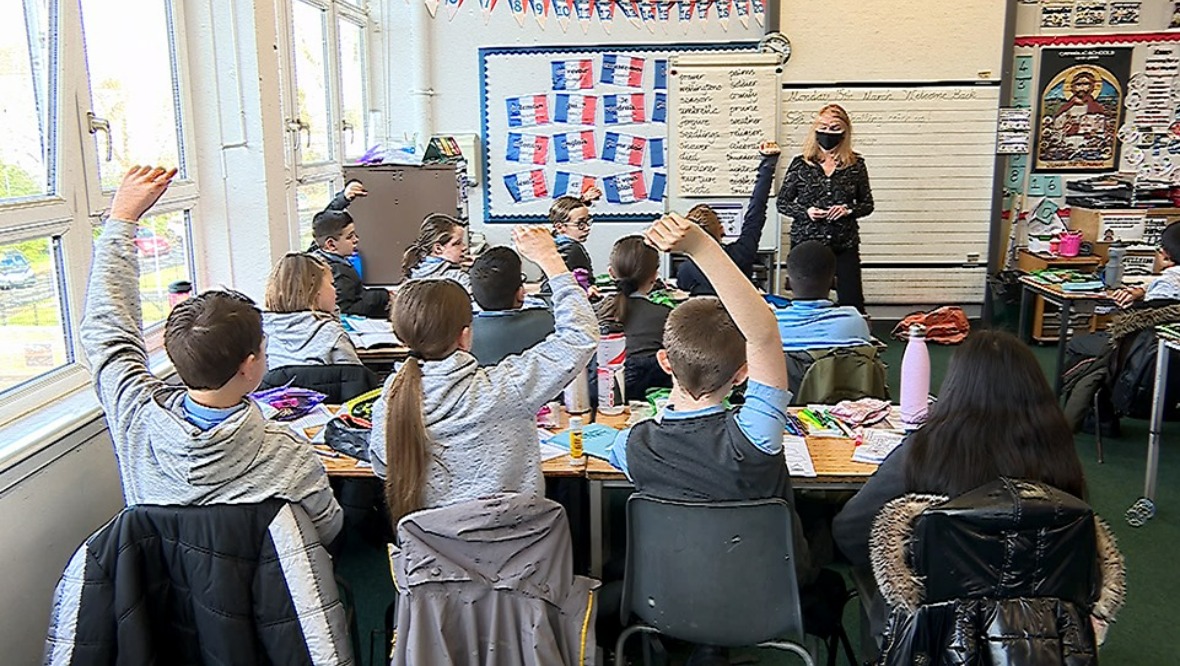 STV News
STV NewsThe Educational Institute of Scotland (EIS), the country’s largest teaching union, has delivered a “fair pay petition” with more than 25,000 signatures to the offices of both the Scottish Government and COSLA, the employers’ federation.
Gathered over the last few busy weeks of term, the EIS says the signatures reflect the growing impatience of teachers over their “cost of living” pay claim that should have been settled on April 1.
Last month, the EIS rejected a 2.2% pay deal, saying its members would be willing to strike if they did not receive a fair offer, with the Scottish Negotiating Committee for Teachers submitting a 10% pay claim on behalf of the profession.
Andrea Bradley, EIS general secretary-designate, says it intends to ballot members in the autumn about industrial action if “a fair settlement is not reached”.
Teachers in England will receive increases of between 5% and 8.9% from September. The starting pay for teachers outside London will rise by 8.9%, with salaries reaching £28,000 in the 2022/23 academic year.
Royal Mail workers: Already voted to strike
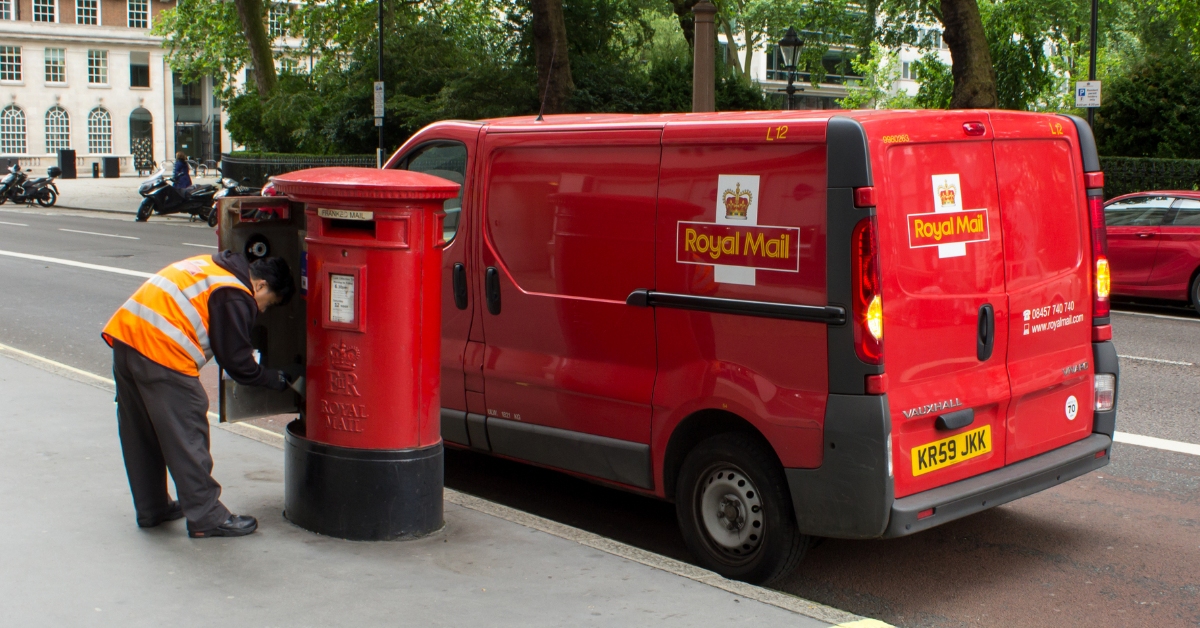 iStock
iStockMore than 115,000 postal workers at Royal Mail voted to strike earlier this week, in what is expected to be the biggest industrial action to hit Britain this summer.
A ballot of members of the Communication Workers Union (CWU) showed huge support for industrial action in protest at a 2% pay offer.
A total of 97.6% of those who voted backed strikes on a turnout of 77%. The union said it was an unprecedented result.
Royal Mail bosses say the business lost £1m each day over the latest quarter. The company’s revenues fell by 11.5% to £1.88bn, compared with the same period last year.
Meanwhile, revenues for the Royal Mail Group, which also includes international arm GLS, saw a 5.1% decline in revenues to £3bn.
Royal Mail chief executive Simon Thompson said: “I am ready to talk about pay and change at any time. But it has to be both.
“When we previously spoke to the unions we said there needed to be an improvement in productivity, but it has not gone forwards but backwards.”
Train drivers: Long-running pay dispute settled
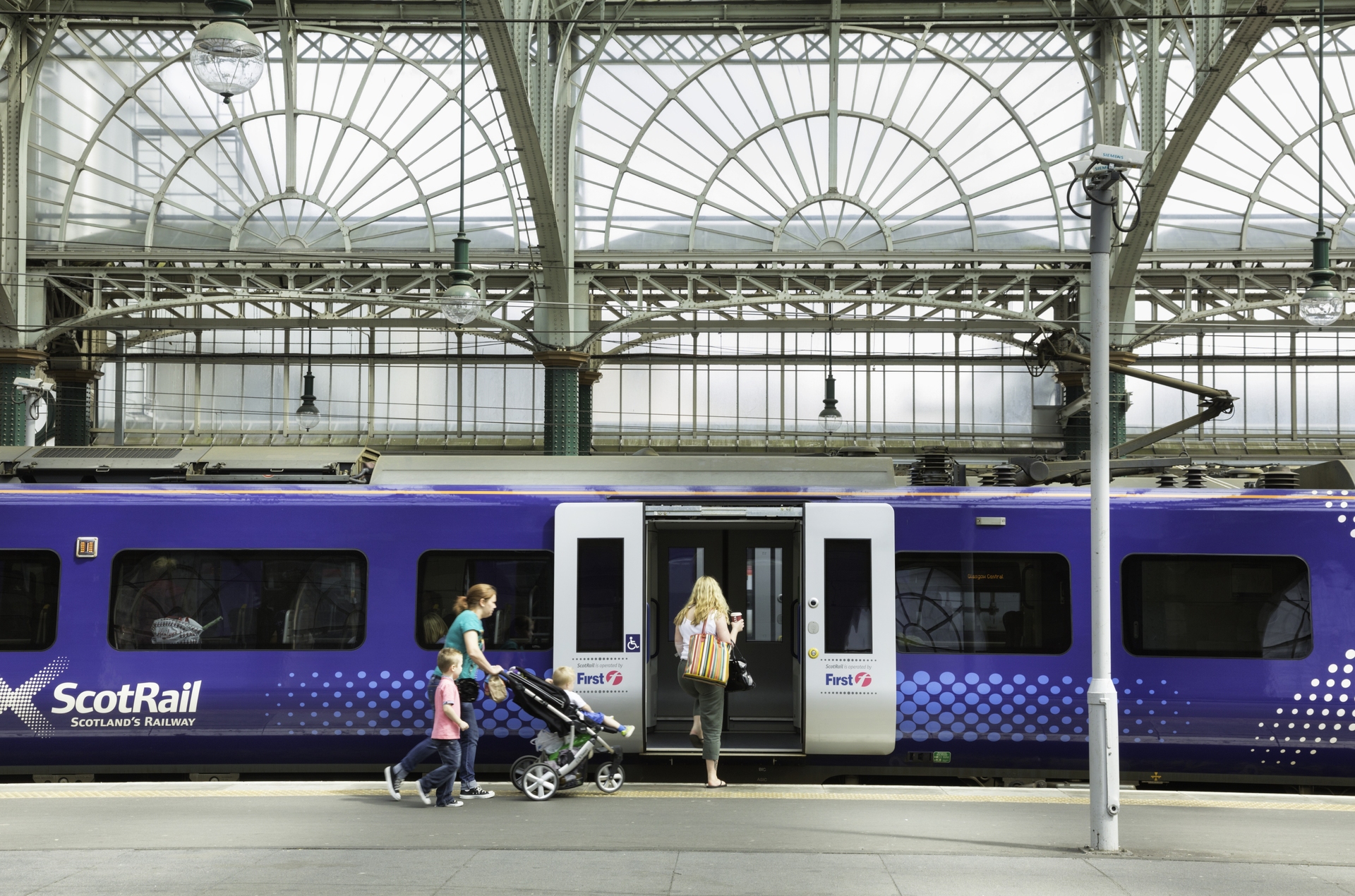 iStock
iStockMembers in the Aslef union have now voted to accept an improved pay offer, which includes a 5% wage increase, more money for rest day and Sunday working and a policy of no compulsory redundancies for the next five years.
ScotRail trains are returning to normal this week with almost 700 more services running each day.
Services were heavily disrupted over the last two months amid an ongoing dispute which saw drivers refuse to work overtime or on rest days.
At the height of the pay dispute, a temporary timetable had to be introduced on May 23 – just weeks after ScotRail was brought into public ownership – in a bid to reduce the number of trains that were cancelled at short notice.
Council workers: Waste could be left to rot on the street
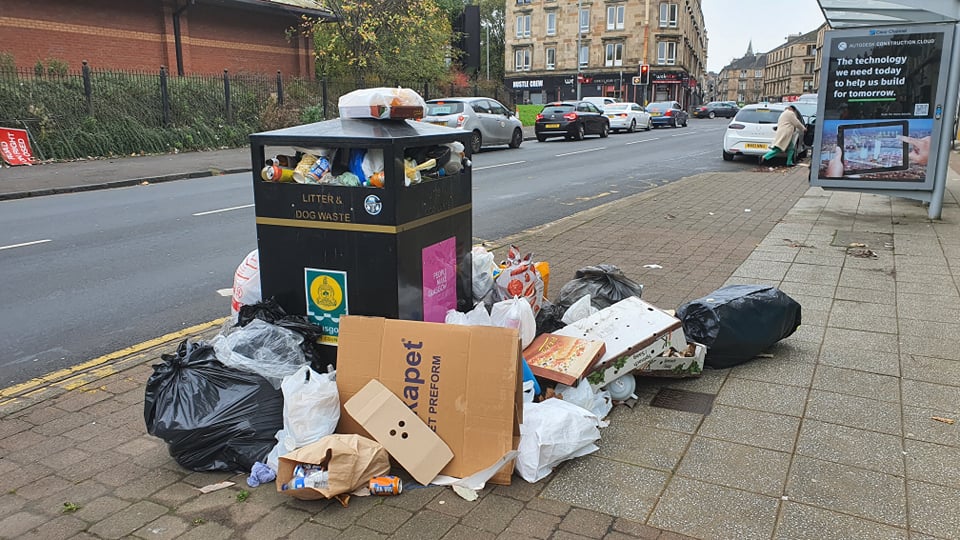 STV News
STV NewsGMB Scotland says inevitable strike action will see schools close and waste left to rot on the street if the Scottish Government doesn’t intervene.
Earlier this summer, the trade union issued a ballot to workers in every Scottish local authority on potential industrial action after they turned down a 2% pay offer.
The ballot, which runs until July 26, will determine how workers want to proceed.
Keir Greenaway, GMB Scotland senior organiser for public services, said: “These are the same frontline workers who worked at the peak of the pandemic and continue to do so.
“Nicola Sturgeon and Kate Forbes still refuse to sit down with unions and COSLA to reach a deal that will respect and value staff in local government.
“It’s the height of hypocrisy for Nicola Sturgeon to call for the UK Government to intervene on rail strikes while she sits on her hands on council pay. If the Scottish Government does not intervene, strike action will be inevitable. Schools will close and waste will rot in the streets.”
Follow STV News on WhatsApp
Scan the QR code on your mobile device for all the latest news from around the country


 iStock
iStock
























